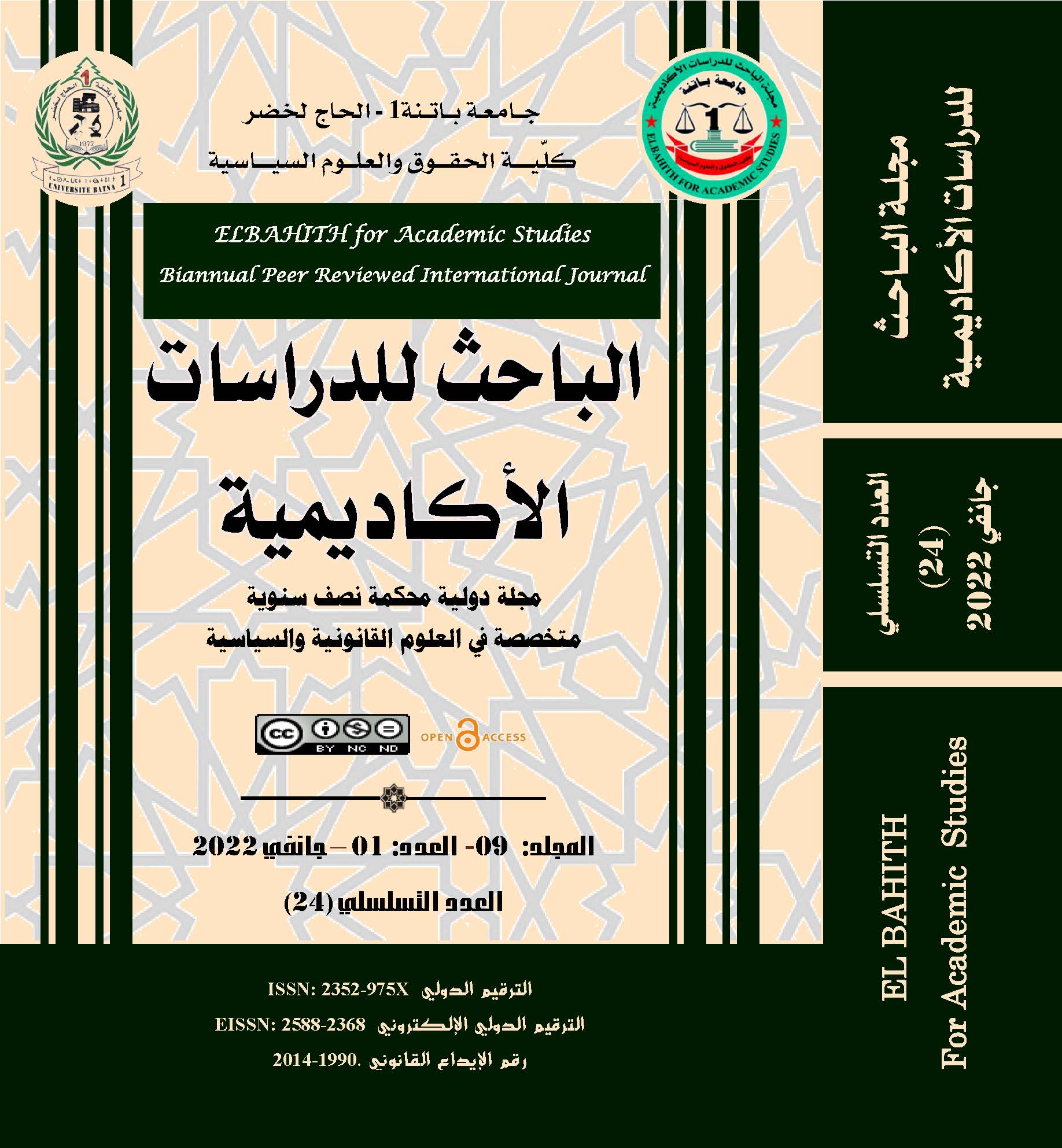Government political responsibility as an impact of the signature of the censorship petitioner under the 2020 Constitutional Amendment
DOI:
https://doi.org/10.59791/efas.v9i1.1289Keywords:
The political responsibility, motion of censure, constitutional amendment, Interrogation, ParliamentAbstract
The expansion of the use of the motion of censure as a mechanism of holding accountable the government under the constitutional amendment of 2020 was of great importance in the current constitutional system, as it affects the government following the discussion of the policy statement, and as an effect of parliamentary questioning, which enhances the chances of its use. However, its maintenance under the same conditions and procedures forms a real obstacle to the possibility of its activation, not to mention the difficulty of having the quorum required to sign it or even to vote on it. In addition, the approval of the political responsibility of the government in solidarity following a parliamentary questioning of a minister is unjust and unfair against the government. Which is what we aim to treat by addressing the following problematic: to what extent does the motion of censure in the form of the latest constitutional amendment constitute a tool for determining the political responsibility of the government? We will answer this problematic relying on the descriptive analytical approach.
Downloads
Published
How to Cite
Issue
Section
License

This work is licensed under a Creative Commons Attribution-NonCommercial-NoDerivatives 4.0 International License.




